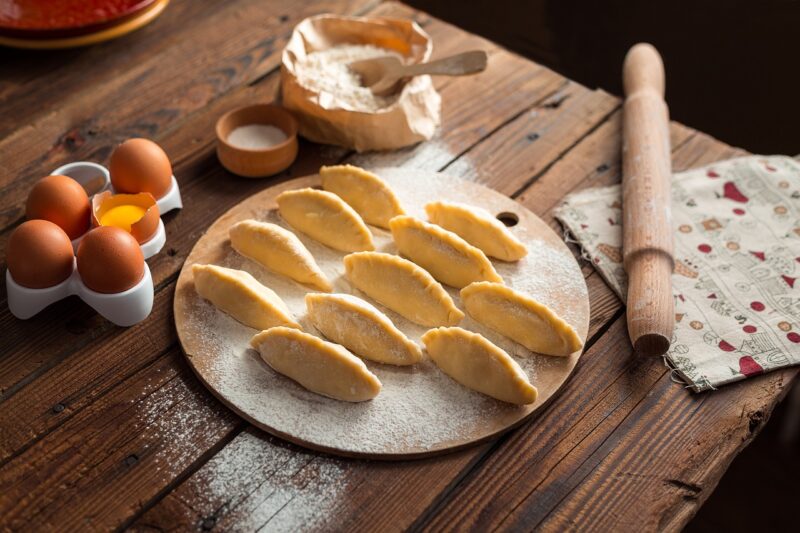
Cooking is a fundamental skill that has the power to transform your daily life. Whether you’re looking to impress your friends with culinary delights or simply want to learn how to prepare nutritious meals for yourself, mastering the basics of cooking is the first stepping stone towards becoming a confident and creative cook.
In this comprehensive guide, we’ll delve into the essential techniques, tips, and recipes that every beginner cook should know.
1. Setting Up Your Kitchen: Essential Tools and Appliances
Before you start cooking, it’s crucial to ensure that your kitchen is equipped with the right tools. Having the right tools can make the cooking process much easier and more enjoyable. Here’s what you need:
- Chef’s Knife: A good quality chef’s knife is indispensable for chopping and slicing various ingredients.
- Cutting Board: Choose a sturdy cutting board to provide a safe surface for preparing food.
- Measuring Cups and Spoons: Accurate measurements are essential for successful recipes, so invest in a set of measuring cups and spoons.
- Pots and Pans: A basic set of cookware including a frying pan, saucepan, and stockpot will allow you to create a variety of dishes.
- Baking Sheet: Useful for roasting vegetables or baking bread and cookies.
- Mixing Bowls: You’ll need several mixing bowls for preparing ingredients and mixing batter.
- Cooking Utensils: Have a spatula, wooden spoon, and whisk on hand for flipping, stirring, and mixing ingredients.
By equipping your kitchen with the right tools, you’ll be ready to tackle a wide array of cooking tasks.
2. Understanding Cooking Techniques: The Building Blocks of Every Dish
Learning the basic cooking techniques is vital for any beginner. Here are some fundamental methods and what they entail:
- Boiling: Cooking food in water at high temperatures. Great for pasta and vegetables.
- Sautéing: Cooking food quickly in a small amount of oil over high heat. Perfect for vegetables and proteins.
- Baking: Cooking food using dry heat in an oven. Excellent for bread, pastries, and casseroles.
- Roasting: Cooking food in an oven with dry heat, often used for meats and vegetables.
- Grilling: Cooking food over an open flame or hot grill, particularly good for meats and vegetables.
- Steaming: Cooking food using steam from boiling water. This method preserves nutrients and flavor.
Familiarizing yourself with these techniques will provide you a foundation that you can build upon as you try out new recipes.
3. Learning How to Season: Elevating Your Dishes with Flavor
Seasoning is one of the most important aspects of cooking. It can transform a bland dish into something magnificent. Here are some basics to enhance your seasoning skills:
- Salt: Enhances flavors in food. Use it sparingly and taste as you go along.
- Pepper: Adds a gentle kick and depth to dishes. Freshly ground pepper is often the best choice.
- Herbs and Spices: Use dried or fresh herbs and spices to add unique flavors. Experiment with garlic, basil, thyme, cumin, and paprika.
- Acidity: Ingredients like lemon juice or vinegar can brighten dishes. Add acidity to balance richness and enhance flavors.
Practicing your seasoning skills will make a significant difference and help develop your unique cooking style.
4. Starter Recipes: Simple Dishes to Get You Going
To put your newfound skills into practice, here are a few simple recipes perfect for beginners:
A. Scrambled Eggs
- Ingredients: Eggs, salt, pepper, butter.
- Instructions: In a bowl, whisk eggs with salt and pepper. Heat butter in a non-stick skillet over medium heat. Pour in the eggs and stir continuously until they are fluffy and fully cooked. Serve with toast.
B. Simple Pasta
- Ingredients: Pasta, olive oil, garlic, and your choice of vegetables or protein.
- Instructions: Boil pasta according to package instructions. While the pasta cooks, heat olive oil in a skillet, add minced garlic, and vegetables or protein. Sauté until cooked. Toss the drained pasta with the mixture, season with salt and pepper, and serve.
C. Vegetable Stir-Fry
- Ingredients: Mixed vegetables (like bell peppers, broccoli, and carrots), soy sauce, and rice.
- Instructions: Cook rice according to package instructions. In a pan, heat oil over medium-high heat. Add vegetables and stir-fry until tender. Drizzle with soy sauce and serve over rice.
These easy recipes will help you practice essential cooking techniques while building your confidence in the kitchen.
5. Tips for Building Confidence in the Kitchen
Every beginner cook faces challenges, but there are tips to help you gain confidence:
- Start Simple: Begin with easy recipes that require minimal ingredients and techniques. Gradually work your way up to more complicated dishes.
- Make Mistakes: Embrace mistakes as learning opportunities. Cooking is a skill that improves with practice.
- Cook Regularly: Consistency builds confidence. Try to cook a few times each week to reinforce your skills.
- Get Creative: Experiment with flavors and modifications. Don’t be afraid to try different spices or ingredients to make a dish your own.
With patience and practice, you will find yourself becoming more comfortable and inventive in the kitchen.
Conclusion: Enjoying the Journey of Cooking
Cooking is as much a journey as it is a skill. Embrace every step of the process and allow yourself to have fun while experimenting with new flavors and techniques. With dedication and practice, you’ll soon be serving up delicious, home-cooked meals.
Start mastering the basics of cooking today, and watch your confidence and creativity in the kitchen flourish. Happy cooking!








